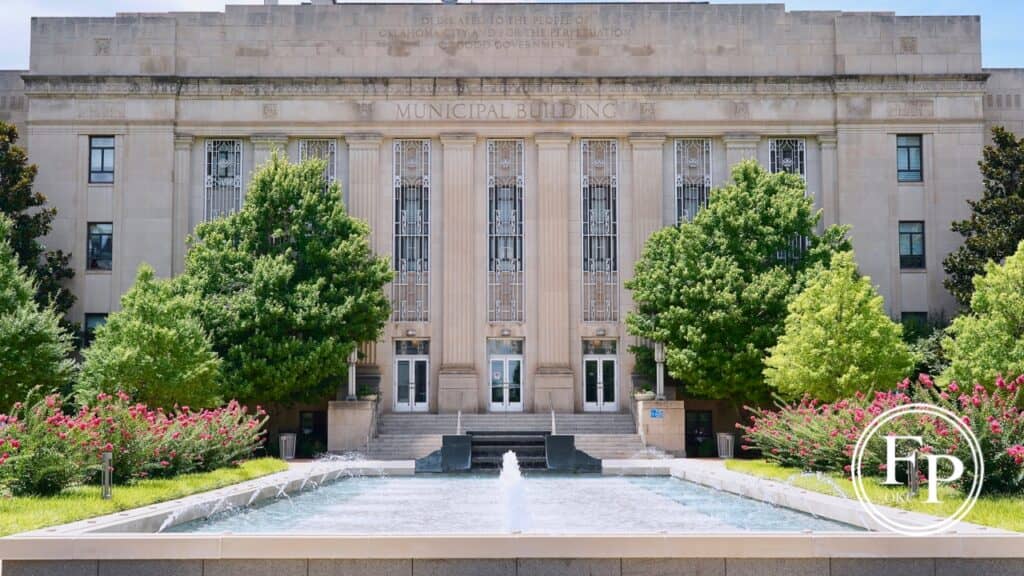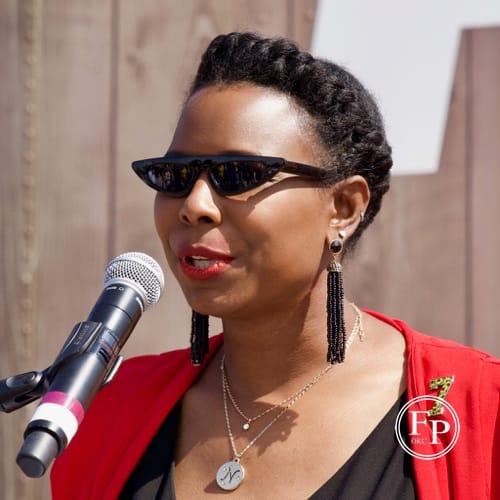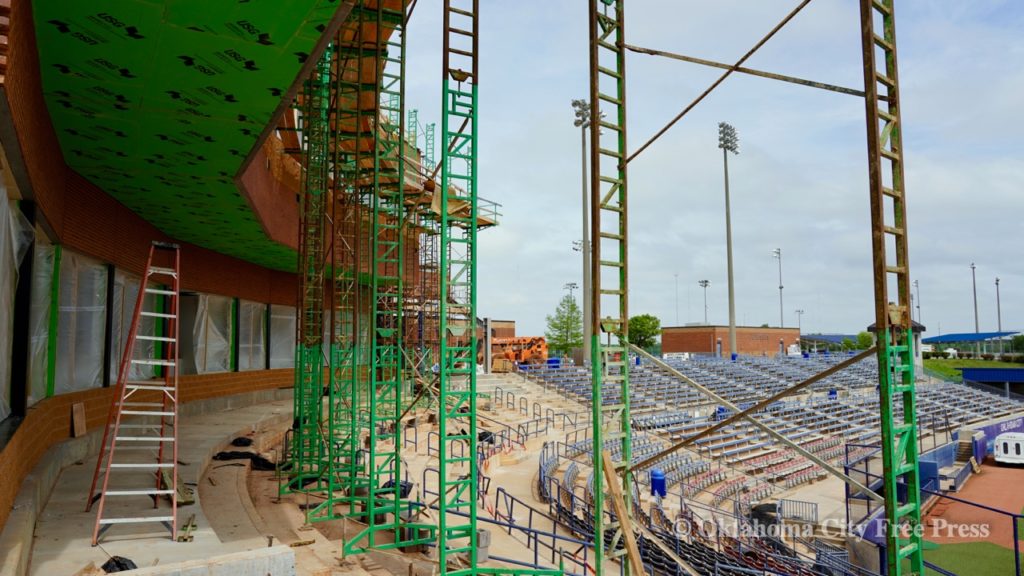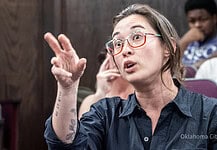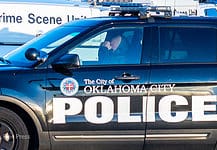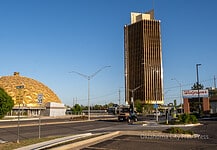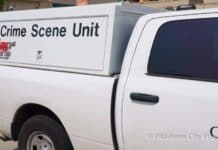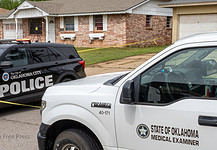Last Updated on April 27, 2021, 6:39 PM | Published: April 27, 2021
OKLAHOMA CITY (Free Press) — The City Council of Oklahoma City voted unanimously Tuesday to recognize and condemn the Tulsa Race Massacre and events that led to it.
In a virtual setting, the Council also heard an update on the City’s Softball Hall of Fame and Tournament site from USA Softball. Questions were raised about the impact recent bills passed and signed by the Governor on NCAA events in Oklahoma City.
In Executive Session counselors discussed some litigation as well as negotiations with the three unions representing City employees.
Race Massacre
The most significant moments of Tuesday’s meeting of the City Council were consumed by the presentation of a resolution from Ward 2 Councilman James Cooper and Ward 7 Councilwoman Nikki Nice. The resolution served as a history lesson for many in the meeting.
The resolution centered on the deadly massacre that happened in Tulsa on May 31 and June 1 1921 claiming hundreds of black lives. Approximately 10,000 black people were left without homes or businesses in the formerly thriving Greenwood neighborhood of Tulsa, also called Black Wall Street because of the economic strength experienced in the area.
Through their resolution, Cooper and Nice drew lines between what occurred in Tulsa and things that were happening in Oklahoma City and across the nation at the same time. Stories of local lynchings and Ku Klux Klan marches punctuated their presentation.
After reading the resolution, Nice made comments.
She said that it’s important to connect these events from the past. This year as Tulsa confronts this painful anniversary, Nice said her heart is with their community as they also try to confront the outcomes of generations of Tulsans being intentionally left out of progress and economic development.
Nice said that it’s been 100 years, and we’re still left to wonder what reconciliation might look like for the community.
Cooper added that he attended some of the best schools with some of the best teachers in central Oklahoma, but somehow did not learn of the Race Massacre until 2008 when he was in graduate school at OSU.
He said that we as a community need to face these ugly things so that we can move on as survivors.
“This is where healing needs to begin,” Cooper said of Oklahoma.
The resolution passed unanimously.
Softball and legislation
Craig Cress, CEO of USA Softball, gave a brief presentation to Council about updates to the USA Softball Hall of Fame Complex that hosts many tournaments and events year-round.
2021 would be the 30th year for Oklahoma City to host the NCAA Women’s College World Series (WCWS), but last year the event was canceled due to COVID-19. Cress hopes to welcome the return of that tournament and others to the park.
Seating has increased at the stadium complex, which now offers 13,000 possible seats for an event. Restroom facilities have increased by 131 new facilities. Millions were spent from the Better Streets, Safer City general obligation bond and from donors to make the renovations.
Ward 7’s Nice asked about the potential repercussions for NCAA events being held in Oklahoma due to recent legislation. The NCAA has previously said that they will not hold events in states that further stigmatize and punish people who are transgender or gender-nonconforming.
Cress said that as CEO of USA Softball, a 501c3, he is not allowed to participate in political speech on behalf of his company. However, on a personal note, Cress said that losing the tournament would be devastating for the Hall of Fame and the $25 million investment the City has made in building this facility.
Nice shared this concern, also calling it devastating if the NCAA pulls out of Oklahoma City. Low estimates are that it could cost the City millions if that happens.
Willard Shelter
Jerrod Shadid, Homeless Services Coordinator for the City, gave a brief presentation on the Willard Winter Shelter that the City opened with the Homeless Alliance and Mental Health Association Oklahoma.
In recent years, the City has Coordinated with the Homeless Alliance, MHAOK, and other service providers in Oklahoma City to create a robust winter emergency shelter network. However, COVID made the usual plans unworkable, as they relied on placing overflow beds in already crowded shelters.
By partnering with the two nonprofit organizations, the City was able to open a temporary shelter from January until the end of March.
During that time the shelter, located at the old Willard School at NW 3rd and Douglass, saw 1,120 unique guests. The average nightly population of the shelter was 144 persons. During the height of the deep freeze and winter weather, the shelter had a maximum of 276 guests.
86% of guests stayed in the shelter for 30 nights or fewer. 28% of guests to the shelter, 319 people, had never accessed any services in Oklahoma City. A total of 30 new housing assessments were conducted at the shelter.
Shortly after the temporary shelter was closed, City Care opened a longer-term low-barrier shelter.
Mask Mandate
As the current City ordinance requiring masks in public places and businesses is expiring at midnight on April 30, no action was taken by Council on Tuesday to extend that mandate.
However, privately owned businesses still have the right to require masks on their property.
The City Council meets again on May 11 at 8:30 a.m.
Columnist covering local government in Oklahoma City and Oklahoma County from May 2019 through June 2023.
